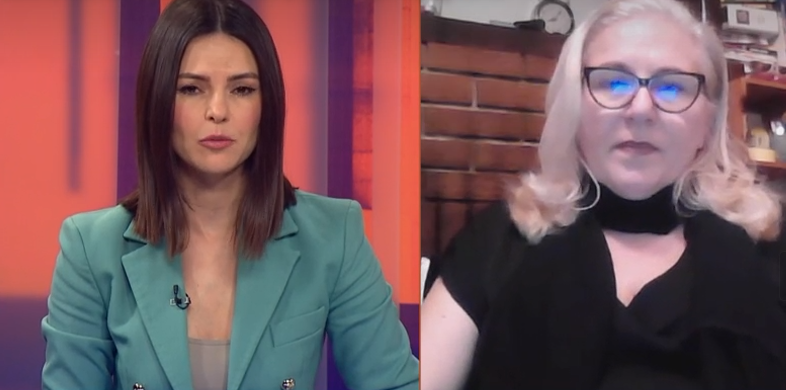
Since February 14, 2024, when our organization, the CEE Network for Gender Issues, participated in the Women’s Film Festival on the topic of “Violence in Relationships,” we have been featured on the topic of sexual harassment in the workplace on Croatian Radio 1’s program “Civil Society.” We were also present on Top Radio regarding our gathering in Zagreb on February 6, 2024, and we continued to make appearances on television, radio, and in print on the topic of sexual harassment in the workplace on February 26, 2024.
Thus, our communications director appeared on the topic of sexual harassment in the workplace on the largest national portal, which also has studio shows, “Jutarnji list,” on March 8, 2024. There, she spoke about sexual harassment in the workplace as well as other important issues related to women’s human rights and sexual harassment in the film industry.
“Immediately thereafter, a scandal related to sexual harassment in the workplace emerged in public, which was associated with the well-known film and theater director Dalibor Matanić, who was also involved in the ‘Mee2’ campaign and stood out as a fighter for women’s human rights. His producer received a tip-off that the mentioned director was actually one of the sexual predators who offered roles to young actresses in exchange for a favor in engagement in a film. Allegedly, his sexual harassment had been present for over a decade. The director institutionalized himself. Our communications manager Danijela Stanojević was called via video link and commented on the case in the N1 television studio (Regional broadcast) on April 8, 2024.”
"In these most-read newspapers, they asked: An isolated case… or? “In the world of film and television, there is generally a very aggressive and violent form of communication,” believes Stanojević. “Many women in Croatia have surely endured some form of torture and have experienced something that is unacceptable. Perhaps the young actresses rebelled because they are younger and it does not suit them, but my generation has also taken a very clear stance. We do not know how to draw the line. This is not business communication,” she emphasizes, adding: “This is how many men in positions of power operate. They have power, and with it comes money, women, cars, and a plethora of series, films, and commercials. All the jobs went to Matanić’s advantage.”
"Regrettably, despite the team’s appeals with the Ombudsperson for Gender Equality to the Help desk opened in our partner’s office, none of the young actresses dared to take the step forward and report their case. Psychologist Radojka Kraljević, working on the Teamwork2 project, appeared on the information program of the Croatian Radio Television on channel 4, public television, where she spoke on the project’s theme: In focus: informal communication at work sometimes leads to harassment, victims rarely report… In this way, she explained in 30 minutes how to empower victims to report violence and the proper way to handle such cases.

Workplace communication is key to successful business operations. In Croatia and Europe, the most issues arise with gender equality at work, i.e., there are many cases of sexual harassment. Sexual harassment is a taboo subject that is difficult to discuss. Handling anonymous reports is possible, but the information must be well disseminated. It is crucial for victims to report such incidents so that perpetrators can be properly prosecuted. Therefore, efforts must be invested in educating workers, employers, students, and through upbringing and education to raise awareness in society.
